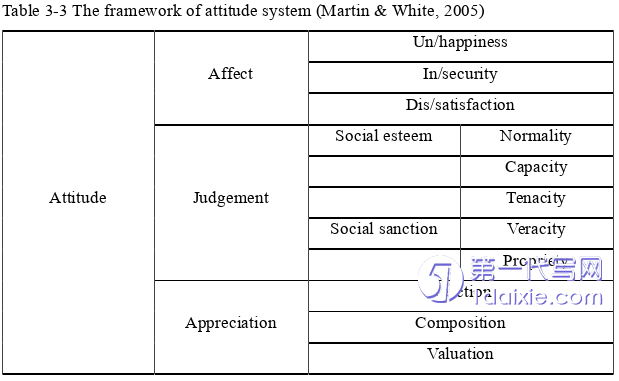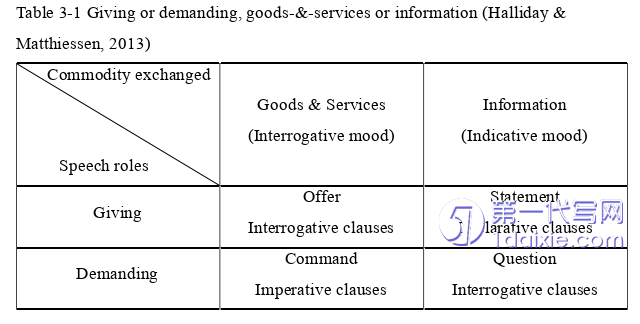本文是一篇英语论文,本文结合了修辞下的人际意义和说服,有助于探讨这两种理论的融合。此外,它还引入了情绪、情态和态度系统,这有助于丰富SFL下的人际意义研究以及评价系统研究。
CHAPTER 1 INTRODUCTION
1.1 Research background
At the start of 2020, covid-19 has swept the globe and had a significant impact on the pharmaceutical industry at home and abroad. The pharmaceutical industry is a basic industry that is related to people's health. It is also an industry that carries out product research and improves the overall innovation strength of the country. At the same time, with the implementation of our country's medical reform, China's capital and technological investment in the medical industry has been further increased. The medical industry is bound to usher in new opportunities and challenges.

With the growth of the global population and people's awareness of health management, people's demand for medical services and medicines continues to increase, and the global pharmaceutical market has grown steadily. As for China, the market scale of the pharmaceutical industry has continued to expand in recent years. In 2020, China has become the second-largest pharmaceutical market in the world, after the United States, showing great potential for development.
In the global economy, companies are looking to enter the international market and accelerate their internationalization. Large pharmaceutical companies, especially listed companies, can expand their market scale through transnational mergers and acquisitions and integrate into the global industrial chain. Small and medium-sized enterprises can also gain access to favorable resources by entering the international markets for long-term development. Therefore, driven by the need to enter the global market, the domestic pharmaceutical company are supposed to draw on the experiences from the top companies in all aspects in order to improve their overall competitiveness in the global market.
1.2 Research rationale
The research is conducted based on the following considerations.
Johnson & Johnson is an American company with a history of 135 years. In 2021, it was listed on Fortune Magazine's "2021 World's Most Admired Companies" list, ranking 15th, as the top pharmaceutical enterprise on the list. This is also the 19th consecutive year that Johnson & Johnson has been included in the top 50 in the list. Therefore, Johnson & Johnson, as an enduring company, can provide a reference for many domestic emerging medical companies.
For a company, letters to shareholders can be seen as a genre used to persuade readers (Hyland, 1998). Letters to shareholders are often located at the beginning of the annual report, written by the CEO to introduce the company's performance and planning for the future. Poole (2017) points out that letters to shareholders can have a better effect on persuading and publicizing the company's accomplishment, strategy, and vision than any other business genre from memos to interviews and manuals and reports. By analyzing the letters to shareholders, investors can have a better understanding of the company's current situation and prospects. To some extent, investors' investment is influenced by their assessment of the company's performance in the previous year as well as their confidence in the company's future planning. Therefore, the writer should make great use of letters to shareholders to persuade the readers, strengthening their confidence in the company's development. Therefore, for domestic pharmaceutical companies, it is important to pay attention to the writing of letters to shareholders to convince overseas investors of the company's bright future.
CHAPTER 2 LITERATURE REVIEW
2.1 Previous studies on interpersonal meaning
Halliday indicates that interpersonal meaning is realized by the accumulation of various linguistic resources such as grammar, lexis, intonation and so on (Halliday, 1994). And the theory of interpersonal meaning has been developed under the efforts of scholars at home and abroad. It has also been proved to be conducive to discourse analysis for providing a new perspective in this field.
2.1.1 Theoretical development of interpersonal meaning
Interpersonal meaning of language refers to that in the course of communication, the speaker manages to use language to express his judgement and attitude, thereby influencing the behavior and attitude of the listener, and shaping their particular relationship (Halliday, 2000). Since Halliday proposes the theory of interpersonal meaning in SFL, many scholars have paid attention to it and developed it through the years.
Interpersonal meaning has been adapted and supplemented by some researchers such as Thompson and Martin. Thompson (2000) provides a more detailed explanation of interpersonal meaning. He defines it as a part of the meaning of language, communicating with others, building and keeping interpersonal relationships with audiences, exerting an influence over other people, expressing their viewpoint to change others. The Appraisal system, proposed by Martin and White (2005), expands the research on interpersonal meaning from grammatical level to semantic level. They suggest that Appraisal system is meant to explore how people express themselves, evaluate things and develop interpersonal relationships with others by language. Attitude, engagement and graduation are the three domains of the Appraisal system. After the proposal of appraisal system, Thompson (2013) explains mood, modality and appraisal system, which provides an overview of interpersonal meaning in a detailed way.
2.2 Previous studies on Aristotle's three rhetorical modes of persuasion
The research on persuasion is abundant in various fields and it can be traced back to Aristotle. This part focuses on Aristotle's three rhetorical modes of persuasion, giving an overview of previous research from its theoretical development and its application in discourse analysis.
2.2.1 Theoretical development of Aristotle's three rhetorical modes of persuasion
Western classical rhetoric has long been viewed as the art of persuasion. And according to Aristotle, the pioneer in western rhetoric, persuasion is "a faculty of considering all the possible means of persuasion on every subject" (Aristotle, 2010: 11). So rhetorical persuasion can be defined as a type of learning that uses language to influence and persuade listeners. Aristotle (2010) identifies three rhetorical modes of persuasion: ethos, pathos, and logos. And nowadays, it continues to play a significant role in communication studies, as human interaction and communication still follow Aristotle's principles of persuasion.
And since the proposal of the three rhetorical modes of persuasion, some scholars further explore the significance of the three modes. As claimed by Murphy (1981), Aristotle's rhetorical modes of persuasion is considered as one of the classical and basic theories of persuasion. Ethos, pathos, and logos are three inseparable dimensions of persuasion. Portolano and Evans (2005) examine Hovland's persuasion theory and find that it is lined with Aristotle's rhetoric. Hovland's theory is concerned with four factors in communication, including arguments, speaker, audience predispositions, and response. And the first three of the factors are closely connected to Aristotle's mode.
CHAPTER 3 THEORETICAL FRAMEWORK ....................................... 15
3.1 Interpersonal meaning in Systemic Functional Grammar .................................. 15
3.1.1 Mood system .................................... 15
3.1.2 Modality system ................................... 17
CHAPTER 4 METHODOLOGY ................................. 23
4.1 Research methods ............................................... 23
4.2 Data collection ............................................... 23
4.3 Analysis tools......................................... 24
CHAPTER 5 RESULTS AND ANALYSIS ................................. 28
5.1 Analysis of letters to shareholders of JNJ under mood system .......................... 28
5.1.1 Distribution of mood in letters to shareholders of JNJ ................................ 28
5.1.2 Analysis of speech roles in letters to shareholders of JNJ under mood system.................................. 29
CHAPTER 6 ANALYSIS OF THE REALIZATION OF PERSUASION THROUGH INTERPERSONAL MEANINGS OF LANGUAGE
6.1 Logos achieved through interpersonal meanings of language
Logos refers to persuasion through reason or logic contained in the argument itself, that is, to persuade people by reasoning or presenting facts. Aristotle (1991) mentions that presenting truth or the apparent truth can persuade people. Persuasion is possible when the experience is real or appears to be real.
In discourse, logos emphasizes logic and reason (Aho, 1985) and appeals to audience's reason through logical, rational arguments. Therefore, Logos is usually achieved by mood system because it functions to provide information, presenting the facts to the shareholders. Modality also works to persuade because the proper choice of moderate operator showing probability can present the objectivity of the letters, arousing readers' trust in the development of the company but also presenting the passion objectively and rationally. For example,

(40) In total, we executed 12 acquisitions and licenses of various sizes, including our acquisition of the company that markets the DR CI LABO line of skincare products, which officially closed in 2019. Additionally, we signed 74 innovation deals as well as 29 new development deals, and we continue to make investments across all industries through Johnson & Johnson Innovation-JJDC, Inc.
CHAPTER 7 CONCLUSION
7.1 Major findings
Based on mood and modality system under Halliday's systemic functional grammar, and the attitude system proposed by Martin, the study takes quantitative and qualitative methods to analyze how persuasion is realized in letters to shareholders in terms of vocabulary, grammar and semantics. The major findings are as follows.
First of all, to answer the first question about the distribution of mood, modality, attitude resources in the letters to shareholders, the statistical results are provided. As for mood, there are 1,537 declaratives, accounting for the largest proportion, 99.8%. It accords with the basic requirements of letters to shareholders, providing information and being objective. As for modality system, probability is used most frequently in letters to shareholders in JNJ, accounting for 40.45%. And inclination comes after it, accounting for 35.58%. Usuality follows next, accounting for 15.73%. Obligation is the least used one in the letters to shareholders, accounting for only 8.24%. As for the attitude system, there are 1,658 pieces of attitude resources in the corpus. Judgement accounts for the largest part of the total attitude resources, taking up 59.95%. Appreciation follows judgement, accounting for 30.04%. Affect takes up the smallest part, making up 10.01% of the total resources. The statistic shows that judgement and appreciation are more often used in the letters to shareholders which means that CEO tends to express attitude by making judgement or evaluation rather than expressing affect directly. Within affect, inclination occupies the biggest proportion of 48.8%, which means that the writer likes to express the intention to do something to show the company's future work or credo they hold. Within judgement, capacity resources take the majority of the proportion with the biggest share of 36.42%, and the normality follows it with the share of 27.57%, presenting the company's strong ability in leading the whole medical industry and making outstanding breakthroughs and innovations.
reference(omitted)
